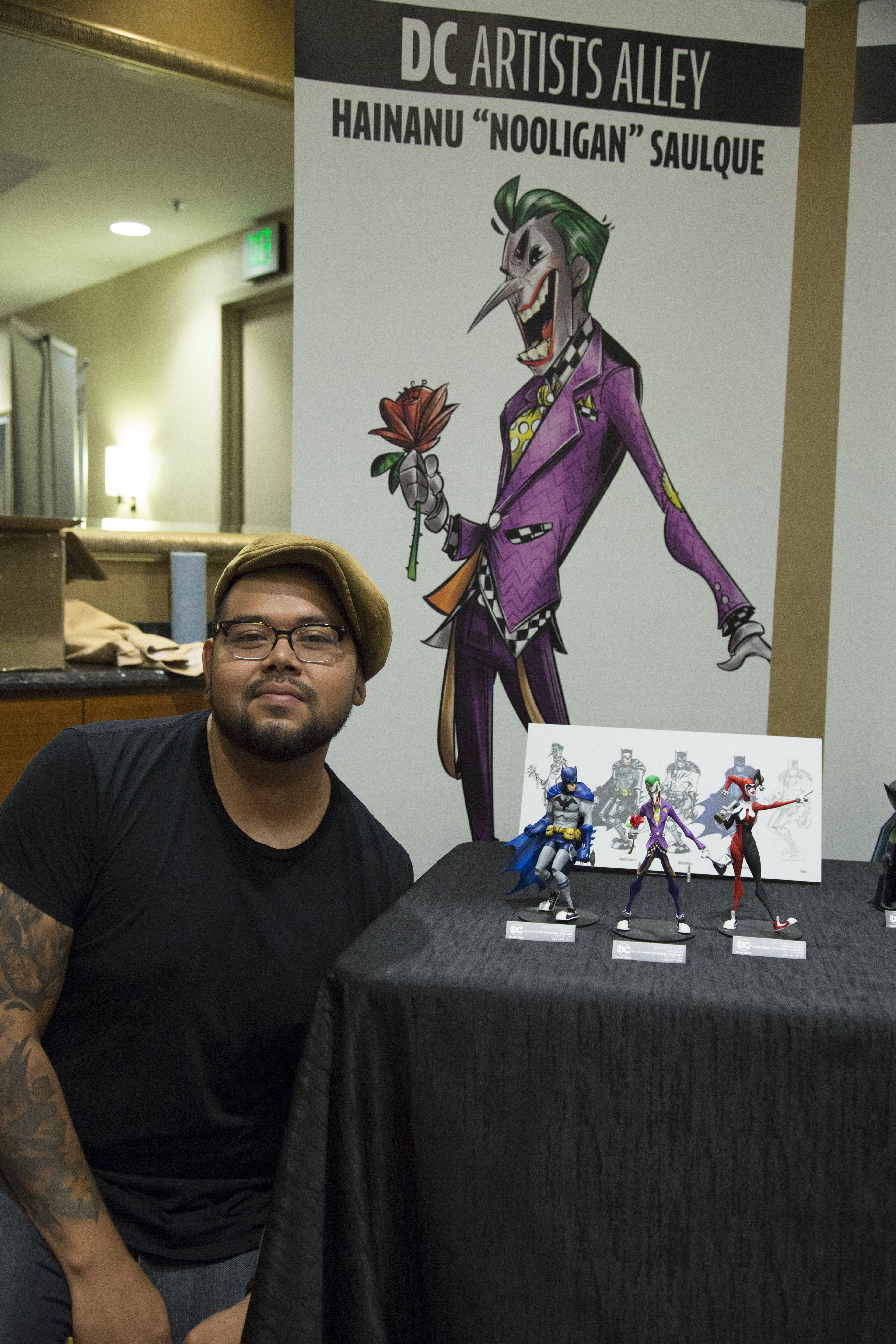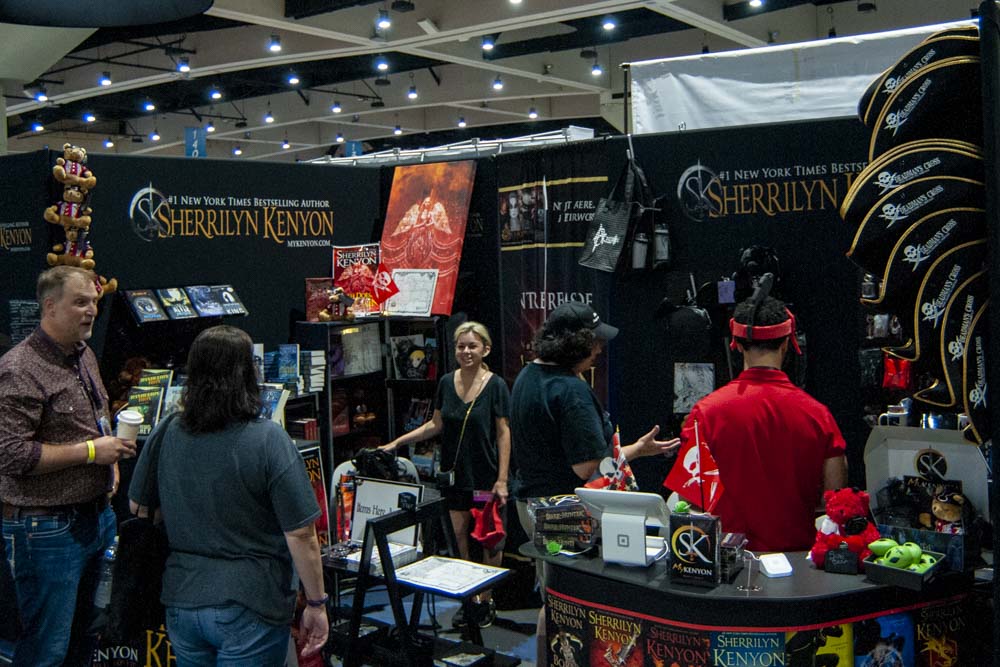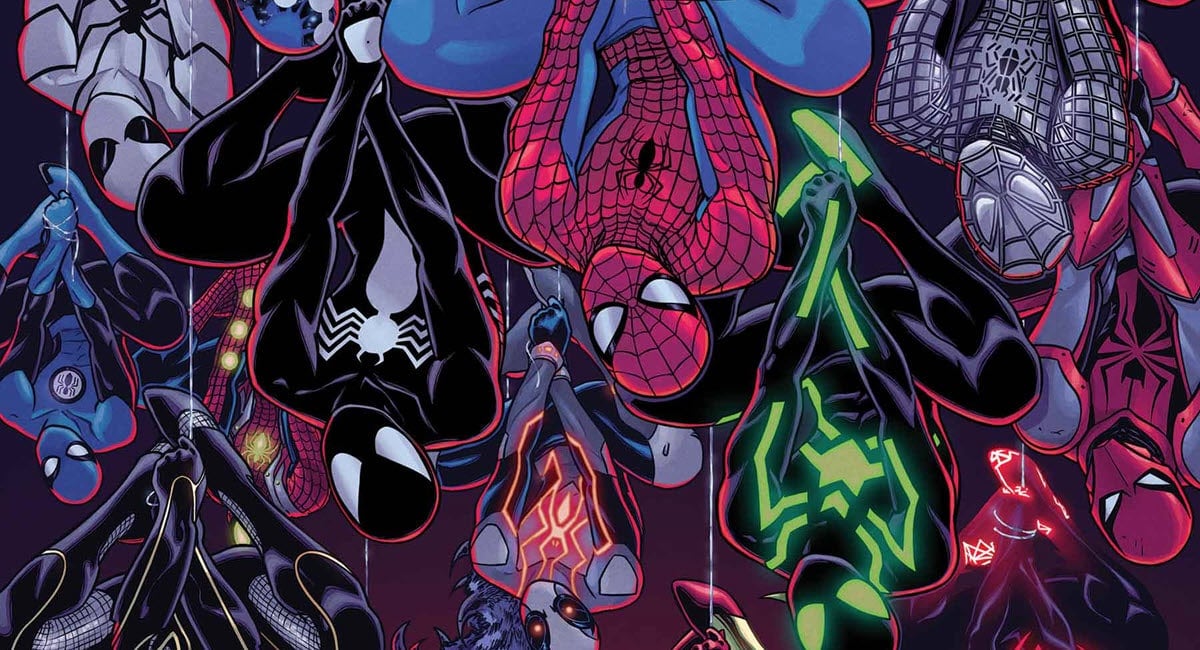Hooray for spring! Now bring on the lamb of March.
§ Is the graphic novel-to movie deal option really slowing? Not for these guys.
When Stephen Stern and his business partner, Joseph Giovannetti, launched Storyboard Graphic Novelsin 2011, they knew they were offering a unique service to the Hollywood community but they had no idea how quickly it would catch on. Within weeks, they had clients that included screenwriters, producers and directors who wanted their screenplays adapted into graphic novels. And their client list quickly extended outside of Tinseltown, to such locations as the UK and India.
“We knew we were providing a service that didn’t exist, but was much needed by creators who wanted to separate their screenplays from the thousands of projects that make the rounds in Hollywood every day,” Stern said. “Not only is a graphic novel a veritable storyboard for a movie hence our company namebut films based on comic-books and GNs are among the surest bets for studios.”
§ Sometimes the creators actually get a break. When Random House introduced new digital-only lines of SF and other genre novels—Hydra, Alibi, Loveswept and Flirt—writer John Scalzi noted that the contracts were terrible:
* No advance.
* The author is charged “set-up costs” for editing, artwork, sale, marketing, publicity — i.e., all the costs a publisher is has been expected to bear. The “good news” is that the author is not charged up front for these; they’re taken out of the backend. If the book is ever published in paper, costs are deducted for those, too.
* The contract asks for primary and subsidiary rights for the term of copyright.
Here’s the craaaaaazy thing: After some outcry, Random House actually changed the contracts. Scalzi comments here.
Sidenote: the original contract that Scalzi decried isn’t totally dissimilar from what’s considered the best contract in comics at Image WITH THESE IMPORTANT DIFFERENCES: Image is not a billion dollar international conglomerate like Bertelsmann, Random House’s parent company. AND at Image there is no question that the creator owns copyright all the way down the line. Scalzi is dubious about the “profit-sharing” model Random House is offering—again somewhat analogous to the “creator participation” model common in comics:
3. The no-advance “profit-sharing” set-up still concerns me as a slippery slope for all sorts of reasons but if the advance-offering option is equitable and reasonable and every author is offered it as a matter of course and there is no discrimination between how the two classes of authors are generally treated and serviced by the imprint, then offering a second, riskier option does not strike me as wholly predatory, as the author can turn it down and still publish with the imprint if such is her choice.
I bring this up just to show how author expectations are way different in comics and traditional book publishing.
OTOH, as Brian K. Vaughan and Marcos Martin proved yesterday, if you have enough of a fanbase you don’t need any middlemen at all.
§ I love those guys at the Outhouse:DC Offices Host Wild Shindig After Young Justice Finale (SPOILERS)
Luckily, Johnston was able to think quickly. “I just yelled, ‘Oblivion for Cassandra Cain!’ and everyone went right back to celebrating the death of a beloved character, except Didio, who kept asking, ‘who?!’ It was a close one.”
§ Dara Naraghi speaks for many on the topic of the Veronica Mars Kickstarter:
Are you kidding me? A major movie studio (Warner Bros.) basically asking their audience to fund their movie, to the tune of $2 million! Of course, fanboys/nerds/genre geeks (whatever you want to call them, and I do include myself in the group) being who they are, have gladly shelled over $3.5 million so far to fund a giant corporation’s movie. And there’s still 26 days to go, so who knows how many more millions they’ll fork over. OK, yes, I know it’s a democratic process and nobody is forcing these people to fund the project. They’re doing it because of their love of the property, and their desire to see more of it. I get that. But still, it feels very, very wrong to me. Crowd funding sites came about to help *CREATORS* fund their projects, not subsidize some multinational mega-corporation.
§ Indie book stores, like local comics shops, are not dying as quickly as expected:
While beloved bookstores still close down every year, sales at independent bookstores overall are rising, established independents are expanding, and new ones are popping up from Brooklyn to Big Stone Gap, Va. Bookstore owners credit the modest increases to everything from the shuttering of Borders to the rise of the “buy local” movement to a get-‘er-done outlook among the indies that would shame Larry the Cable Guy. If they have to sell cheesecake or run a summer camp to survive, add it to the to-do list. “2012 was the year of the bookstore,” says Wendy Welch, co-owner of Tales of the Lonesome Pine in Virginia and author of the 2012 memoir “The Little Bookstore of Big Stone Gap.” In her memoir, she recounts how she and her husband, Jack Beck, created – sometimes despite themselves – a successful used-book store in a town that, by any business measure, is too small to support one.
§ Did you know St Patrick drove the lady comics creators out of Ireland?
§ Cartoonist Paul Conrad’s statue “Chain Reaction” is in the news again. The statue, which stands in front of the Santa Monica Civic Center, is much loved, but also unstable, as its fiberglass components have been deteriorating over the years. Now five former Santa Monica mayors have spoken out to save rather than move the statue:
Denny Zane, Michael Feinstein, Judy Abdo, Jim Conn, Paul Rosenstein and Nat Trives, whose careers collectively span more than three decades of Santa Monica politics, signed the letter to support efforts by the Conrad family to raise money to repair the sculpture which the City has said needs to be removed due to safety concerns. “We’re very appreciative,” said Dave Conrad, son of Paul Conrad. “It’s a huge vote of confidence from people who know how Santa Monica works and also know the history of Santa Monica and the valuable place in that history that Chain Reaction occupies.”
§ WNYC legend Leonard Lopate talks to comics legends Arnold Roth, Drew Friedman, and Al Jaffee about Harvey Kurtzman. Go just to listen to the mellifluous tones of Al Jaffee. While you’re at it, listen to a look back at the Iraq War, one of the saddest darkest moments in US history. Never forget.








Man, it’s been a weak and I’m already sick of people whining about the Veronica Mars movie. If you don’t like it, that’s fine, but to claim it is somehow wrong for a corporation to let an untested property receive a Kickstarter is moronic.
It’s part and parcel to the game of crowdfunding. Why should corporations have any special limitation on their ability to do so than any other enterprise? And were Dara and all the others whining like this when Top Cow did their Cyber Force “for free” Kickstarter?
To be clear, since comments on my original blog post also show that most fans are coming to this discussion with their own preconceived notions, and obviously didn’t read my post before criticizing me: I never said there should be a limitation placed on movie studios/publishers/corporations. Even in the piece quoted above, I acknowledge that it’s free enterprising working as it should.
I was simply sharing my personal reasons why I think this trend is problematic. I was pointing out some of the very obvious risks and legal murkiness that most fans were gladly ignoring in their rush to fork over their money. And I was trying to articulate why this isn’t a good trend.
Comments are closed.